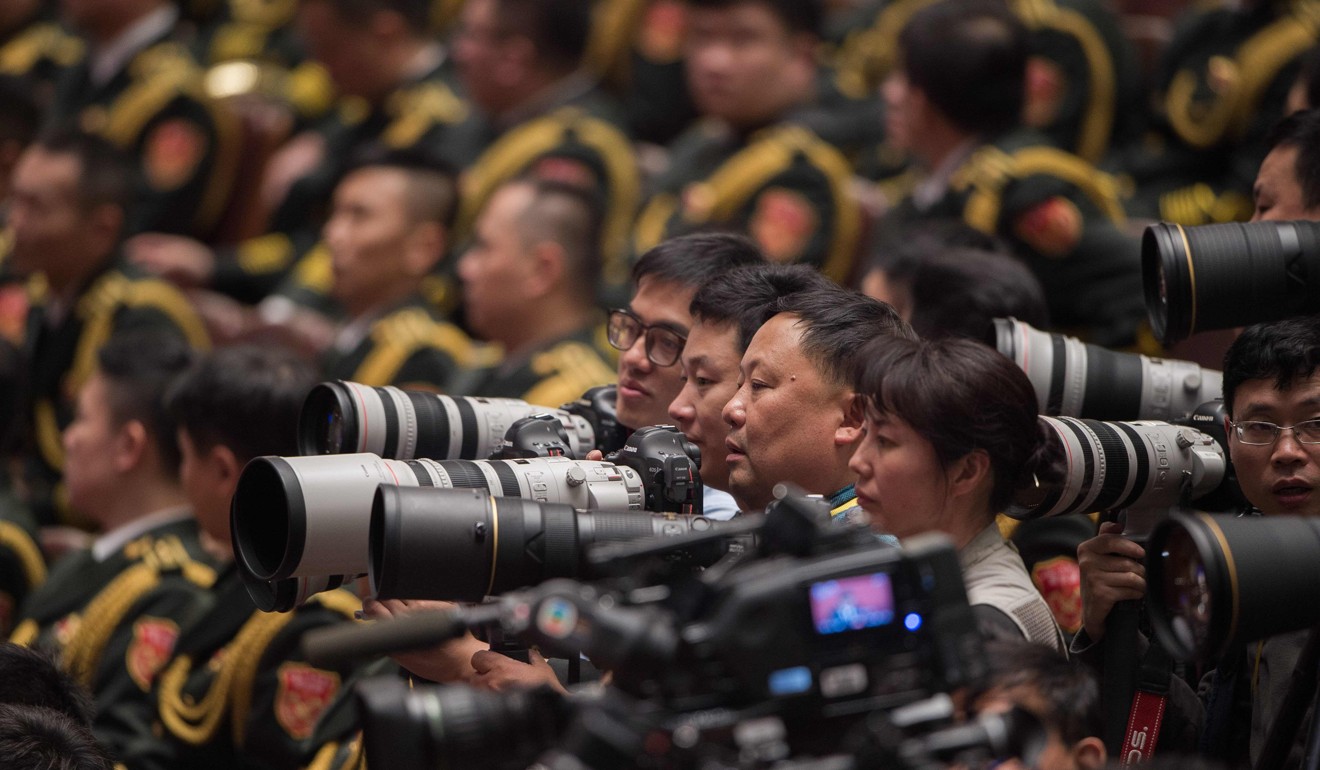
Blanket security as Communist Party kicks off congress
Reporters line up for hours for print copy of president’s speech even as online copy made available
Grey skies hung over the Chinese capital on Wednesday morning as delegates headed into the Great Hall of the People for the start of the Communist Party’s national congress.
Persistent rain put a chill through the city but also achieved what month-long restrictions on manufacturing and vehicles had failed to do – it dispersed smog and raised air quality to “healthy levels”.
Despite limits on traffic and shutdowns to factories and non-essential construction, pollution continued to hover over Beijing in the days leading up to the congress.
But the clearer air might soon come to an end with Beijing weather authorities issuing a “heavy fog” warning on Wednesday afternoon. Authorities warned that visibility was expected to drop to less than 1km and the poor conditions would continue until Thursday morning.
Outside the Great Hall, security was more complex than usual, with sensors in the venue’s plaza automatically detecting passes and displaying the names of the people walking past – and that was before reaching the official security checks. Permits were also checked manually roughly every 200 metres by impassive guards.
Reporters covering the opening ceremony had to observe a long list of other security measures inside, including a “one reporter, one phone” policy. Extra phones had to be handed over and stored in lockers outside the hall’s entrance.

No explanation was given for the policy but the procedures were so complicated that even security personnel seemed unsure about what to do.
One security guard told journalists to leave all of their phones behind before entering the main hall unless they had explicit permits to take them in.
Once the curtain was up, President Xi Jinping delivered an exceptionally long report on the Central Committee’s work over the last five years and laid out the direction for the country and the party for the five ahead.
The 3½-hour report was translated simultaneously into various languages, including sign language. While some observers were impressed with Xi’s capacity to speak for more than three hours at one stretch, others lauded sign language interpreter Zhou Ye’s ability to keep up. Her exhausting efforts earned her an honourable mention from state broadcaster CCTV.
Soon after Xi began his speech, reporters formed long queues at around 10am to get a copy of the report, even though it was being broadcast live on state media, was released line by line online simultaneously and was later published in full on the internet. Reporters had also been notified in advance that print copies would not be handed out until 10 minutes after the speech ended.
Delegates from ethnic minorities decked out in traditional dress are usually a focal point for the media during national political events. But on Wednesday many – particularly delegates from Muslim communities that have been subject to an intense antiterrorism campaign over the last year – appeared less willing to talk, walking briskly along the red carpet to the hall with little to say.
Security has also been tightened in cyberspace – so much so that social media users will have to wait until next month to change their usernames or personal profiles on the country’s most popular platforms such as WeChat, QQ and Weibo.
WeChat, which has 963 million active users, announced the freeze in a statement on Tuesday, the night before the congress started.
QQ, another popular messaging app owned by Tencent, the tech giant behind WeChat, sent a similar message to its users earlier in the day, also attributing the move to “system maintenance”.
The restrictions only appeared to apply to accounts registered in mainland China.
China’s Twitter-like Weibo ordered users to register with their real names and said it was stopping registration of new overseas accounts until October 30.
Additional reporting by Alice Shen

